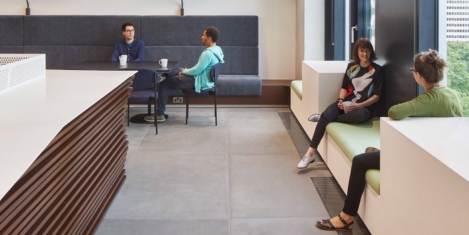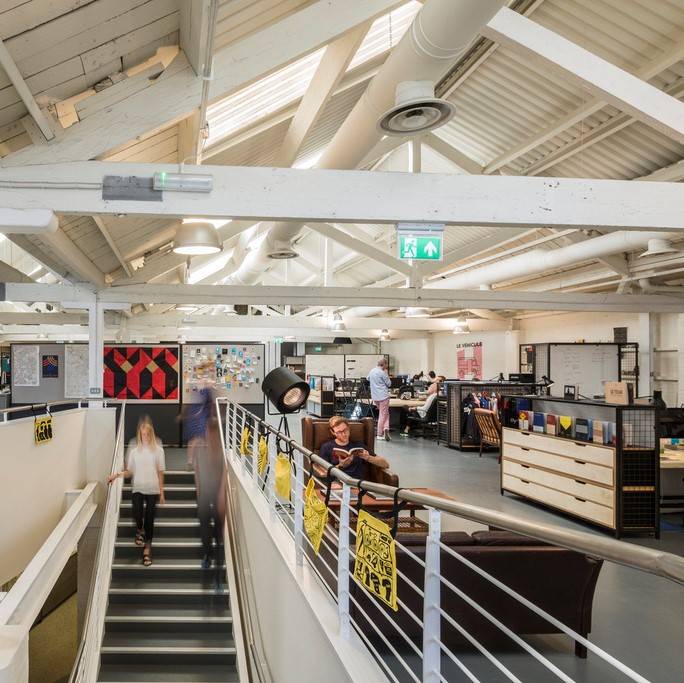March 1, 2018
BIFM to change its name to reflect greater focus on workplace issues and pursue chartered status
 The British Institute of Facilities Management (BIFM) has today announced plans to embrace ‘workplace’ as a key ‘differentiator’ for its members and to help establish facilities management as a chartered profession. The manifesto for change announced by BIFM Chair Stephen Roots, sets out to ‘reposition facilities management, emphasising its ability to make a real contribution to organisations’ performance’. It sets the Institute the ‘twin tasks of helping members to improve their skills and their status to meet the needs of modern organisations, and to raise the profile of facilities management and the understanding of the value it contributes’. The proposed new name is the Institute of Workplace and Facilities Management (IWFM).
The British Institute of Facilities Management (BIFM) has today announced plans to embrace ‘workplace’ as a key ‘differentiator’ for its members and to help establish facilities management as a chartered profession. The manifesto for change announced by BIFM Chair Stephen Roots, sets out to ‘reposition facilities management, emphasising its ability to make a real contribution to organisations’ performance’. It sets the Institute the ‘twin tasks of helping members to improve their skills and their status to meet the needs of modern organisations, and to raise the profile of facilities management and the understanding of the value it contributes’. The proposed new name is the Institute of Workplace and Facilities Management (IWFM).









 A new report a new report by the Centre for Ageing Better has called for government and employers to support older workers to stay in work for longer, help those who have fallen out of work involuntarily to return and to create workplaces that work for all, irrespective of age. The report claims that ensuring older workers are able to stay in good quality employment is essential to the future of the UK economy and will relieve pressure on public finances. It makes some key recommendations that include access to flexible working hours and workplace adaptations to help people manage pressures such as caring responsibilities and health conditions, which become more prevalent with age. It also calls for equality of opportunities in the workplace as older workers in the UK experience age discrimination in recruitment and progression. They are less likely to be offered opportunities for development – across the whole of the OECD only Turkey and Slovenia have lower levels of on-the-job training for older workers than the UK. Research shows they are also the most likely to be stuck on low pay and feel most insecure about their jobs.
A new report a new report by the Centre for Ageing Better has called for government and employers to support older workers to stay in work for longer, help those who have fallen out of work involuntarily to return and to create workplaces that work for all, irrespective of age. The report claims that ensuring older workers are able to stay in good quality employment is essential to the future of the UK economy and will relieve pressure on public finances. It makes some key recommendations that include access to flexible working hours and workplace adaptations to help people manage pressures such as caring responsibilities and health conditions, which become more prevalent with age. It also calls for equality of opportunities in the workplace as older workers in the UK experience age discrimination in recruitment and progression. They are less likely to be offered opportunities for development – across the whole of the OECD only Turkey and Slovenia have lower levels of on-the-job training for older workers than the UK. Research shows they are also the most likely to be stuck on low pay and feel most insecure about their jobs.














 There has been a rise in the number of people who believe businesses in the UK have a good reputation, with a significant number of younger people helping to create this positive picture. The research, comparing perceptions of businesses between May and November 2017, reveals 2 in 3 people think UK businesses have a good reputation, up 7 percent in 6 months. The tracker, conducted by the CBI in partnership with global PR agency, Porter Novelli, and research company, Opinium, revealed that the public are more aware of the value business provides in local communities with an increasingly vocal business community emerging in recent months. Importantly, the improvement in business reputation has largely been driven by young people and those in work, with a significant 15 percent rise in positive views among 18-34 year olds. This reinforces the view that younger people are more engaged in the debate about the UK’s future, with the Brexit negotiations and a sharper political debate intensifying the focus on jobs and the economy.
There has been a rise in the number of people who believe businesses in the UK have a good reputation, with a significant number of younger people helping to create this positive picture. The research, comparing perceptions of businesses between May and November 2017, reveals 2 in 3 people think UK businesses have a good reputation, up 7 percent in 6 months. The tracker, conducted by the CBI in partnership with global PR agency, Porter Novelli, and research company, Opinium, revealed that the public are more aware of the value business provides in local communities with an increasingly vocal business community emerging in recent months. Importantly, the improvement in business reputation has largely been driven by young people and those in work, with a significant 15 percent rise in positive views among 18-34 year olds. This reinforces the view that younger people are more engaged in the debate about the UK’s future, with the Brexit negotiations and a sharper political debate intensifying the focus on jobs and the economy.








February 28, 2018
The very idea of good work in a gig economy remains a distant ideal
by Tonia Novitz, Alan Bogg et al • Comment, Flexible working
(more…)